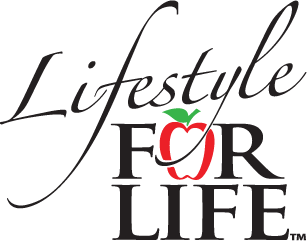Written by Jenn Messina, Registered Dietitian
A plant-based diet is made up of mostly plant foods: vegetables, fruits, whole grains, legumes (lentils, dried beans, and peas), nuts, and seeds. These foods provide the body with a ton of fibre, vitamins, minerals, and phytochemicals while usually being lower in calories than other types of foods.
Being “plant-based” doesn’t mean that you are vegetarian or vegan and never eat meat or dairy. But it means that we take the focus away from meat and animal products, serve it less often, and make it a side dish or condiment instead of the main entrée.
The nutritional benefits of eating more plants are extensive.
-
Plants are rich in fibre which helps keep you full and satisfied for longer periods of time.
-
Plant fibre also feeds our gut microbiome. As you may have heard, our gut is known as the “second brain” and there is bidirectional communication between the gut and the brain. Our gut microbiome is critical for immune function and plays a role in mental health. In addition, whole plant foods are also full of vitamins, minerals, phytochemicals and antioxidants which reduces inflammation, supports your immune system and cellular regeneration, and recharges healing mechanisms to stay healthy and vibrant and energized.
-
We have also seen a reduced risk of diseases such as heart disease, stroke, diabetes, and cancer.
One of the most effective ways individuals can reduce the negative environmental impact is to move towards a more plant based diet.
Raising animals for food requires a lot of land, fossil fuel, water, and food. Cutting back on some of the meat you eat is a good way to reduce your environmental impact. When we compare producing 1lb of animal protein compared with 1lb of plant protein.
Animal protein needs:
-
12x the amount of land,
-
13x the amount of fossil fuel
-
15x the amount of water.
There are also other environmental impacts of farming such as decreased biodiversity, greenhouse gas emissions and soil degradation which is exponentially increased when we raise animals for human consumption. The highest environmental burden comes from ruminant animals like cows, sheep, and goats and their products (such as cheese).
So if you are plant-curious here are 5 strategies to get started with plant-based eating:
-
Switch up your sauces: trade in your creamy sauces for plant-based options like Cashumel for pastas, casseroles, soups, dips, or top your veggies.
-
Cook a vegetarian meal at least one night a week. Build these meals around beans or tofu, whole grains, and veggies
-
Swap out cheese for heart healthy nuts/seeds or spreads like Crème Cashumel; these can be great alternative on salads or in sandwiches
-
Up those veggies! Aim for ½ your plate at lunch and dinner to be vegetables (the more variety in colour, the better!)
-
Try something new! Curious about that plant-based milk, egg-substitute, or tempeh? Try adding 1 new food to your grocery cart every time you shop. You will be surprised what you like!
References:
Alexander, H. (Nov. 2019). 5 benefits of a plant-based diet. The University of Texas MD Anderson Cancer Centre. https://www.mdanderson.org/publications/focused-on-health/5-benefits-of-a-plant-based-diet.h20-1592991.html
McManus, K.D. (Nov. 16, 2021). What is a plant-based diet and why should you try it? Harvard Health Publishing: Harvard Medical School. https://www.health.harvard.edu/blog/what-is-a-plant-based-diet-and-why-should-you-try-it-2018092614760
Palmer, S. (Jan. 16, 2021). How does diet impact the environment? https://sharonpalmer.com/how-does-diet-impact-the-environment/
